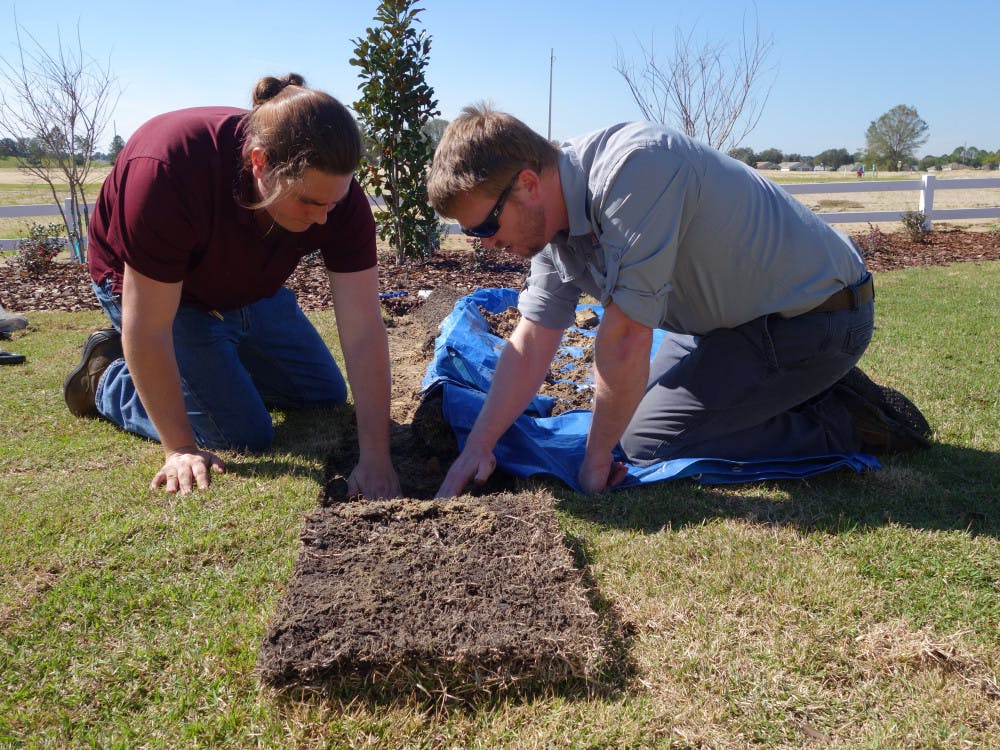Changing the environment starts with one person, and new UF research may help the average homeowner become that one.
The UF Institute of Food and Agricultural Sciences researchers are studying whether the use of compost on residential lawns can help reduce the amount of water needed for healthy soil.
AJ Reisinger, a researcher on the team and IFAS’s state extension specialist for urban soil and water quality, said soil used for newly developed homes is typically low quality, requiring a lot of additional water and fertilizer.
“We’re trying to improve the health of that soil before you get started with the landscape,” Reisinger said.
The team’s preliminary research shows the amount of water used on these lawns, known as irrigation rates, can be reduced by 25 percent or more if compost is used instead of low-quality soil, he said.
Their first study is taking place in Ocala’s On Top of the World retirement community, where researchers are adding compost to lawns before constructing additional homes. Reisinger said the researchers plan on testing the long-term effects of compost in other areas, particularly in Central and Northeast Florida.
“We’ve been partnering with various developers and homeowners associations that are having issues with their landscape,” Reisinger said. “We’re trying to figure out alternative solutions other than applying a lot of chemicals.”
Phillip Hisey, director of landscape operations for On Top of the World, said he is seeing the grass grow more quickly without any damage to the soil. Because the progress has been so great, he said the community is making investments to buy equipment to apply the compost to every new yard.
“As the process grows and more people get on board, it will become the norm rather than the exception,” Hisey said. “It’s certainly something we will see more of.”
Jovana Radovanovic, a researcher on the team and a UF master’s student studying agricultural and biological engineering, wrote in an email that if the research is successful, there will be benefits for Floridians.
“Homeowners will not have to irrigate as often as previously thought, which saves on the water bill but also takes some stress off of the water usage in Florida, since 1,000 people move to Florida every day,” Radovanovic said. “This could be something developers eventually adopt since it has many benefits in the long run.”
Eban Bean, lead researcher on the team, and Marc Thomas, a student studying agricultural and biological engineering, lay out compost. The team is researching whether compost can reduce the amount of water used for residential lawns.
Researchers place compost on developing land plots. The team's first study is taking place at Ocala's On Top of the World retirement community.





